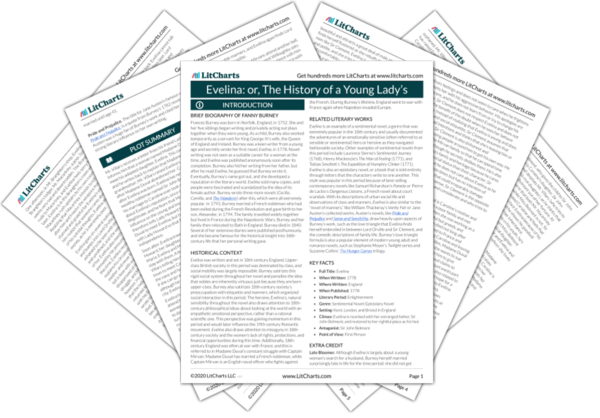Miss Branghton and Polly are middle-class rather than upper-class, meaning they aren’t educated in etiquette and are quite rude. Middle- and upper-class women could not earn their own money in 18th-century Briton and therefore needed to find husbands to financially support them. Unmarried young women were also not allowed out in society without a chaperon, so Evelina cannot live alone in London. Although social mobility was virtually impossible at this time, Mr. Branghton is a social climber and hopes to use his connection to Evelina and her potential nobility (her father, Sir John, is a nobleman)to improve his own social rank.
